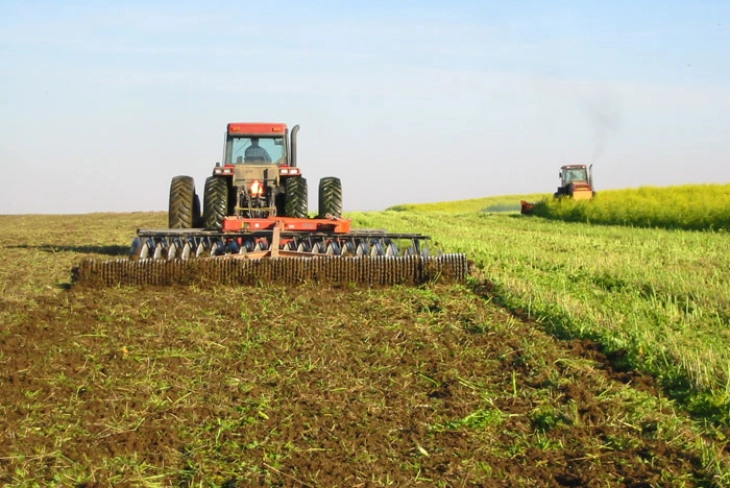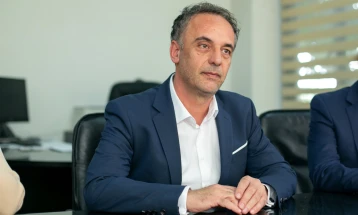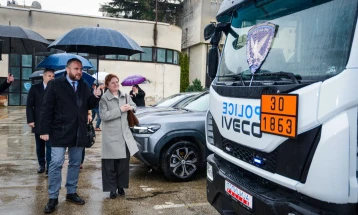Agriculture needs digital engineers for reduced costs and greater food yield: conference
- A new interdisciplinary study program on digital agriculture is being introduced at the Faculty of Agricultural Sciences and Food at Skopje’s “Ss. Cyril and Methodius” University (UKIM). The agricultural engineers that the program will produce are expected to enable reduced costs and greater food yields, and especially aid small-scale producers with the process of digitization.
- Post By Angel Dimoski
- 13:36, 3 June, 2024

Skopje, 3 June 2024 (MIA) - A new interdisciplinary study program on digital agriculture is being introduced at the Faculty of Agricultural Sciences and Food at Skopje’s “Ss. Cyril and Methodius” University (UKIM). The agricultural engineers that the program will produce are expected to enable reduced costs and greater food yields, and especially aid small-scale producers with the process of digitization.
How to adapt the study program and respond to the needs of the real sector was discussed at a conference Monday in Skopje by representatives of educational institutions, the business sector and experts from North Macedonia, Croatia and Slovenia. Representatives of the business sector stressed that digital agricultural engineers are highly necessary for the production of high-quality and competitively priced food.
The dean of the Faculty, Professor Mile Markoski, stressed that the goal of the program is to create modern agricultural engineers who will face the practical challenges of modern digital flows.

“The focus is a compilation of subjects that are significant for the agricultural and food sector, as well as for the technical sciences, together they make a new study program for a new modern engineer that will face the new age, the digitization of the educational process and the process of production in the agricultural and food sector,” Markoski said.
Professor Zdenko Lončarić from the Faculty of Agrobiotechnical Sciences at the “Josip Juraj Strossmayer” University of Osijek, assessed that the situation with the digitization of agriculture in Croatia is almost the same as in North Macedonia and there is no resistance to digitization neither from the younger nor older generations.

“In some ways we are a step ahead, in others a step behind, but we have the same problems and the same goal – to optimize production through digitization, which is everywhere around us. Together, we detect that the biggest issue and challenge will be ensuring that agronomists are sufficiently capable and competent to overcome the issue of transferring digitization to smaller agricultural producers while at the same time keeping up with significant technologies,” said Lončarić.
According to the UKIM's finance prorector, Lazar Pendovski, with the creation of the new study program, the University is introducing new concepts in agriculture which makes up 9-10 percent of the gross domestic product (GDP) and will be significant for the country.

Professor Rozalija Cvejić from the Biotechnical Faculty at the University of Ljubljana, said that the Macedonian institutions are at the very beginning of the process, noting that the establishment of the new study program will significantly improve the country’s food and agriculture sector.
The new study program on digital agriculture has been developed with the support of the Swiss Government through the Program for Increasing Market Employability – IME, implemented by the Palladium Group, the German Agency for International Cooperation (GIZ) and the Regional Rural Development Standing Working Group (SWG-RRD).

Goran Damovski from the Swiss Program for Increasing Market Employability, said that digitization is an essential process for increased competitiveness and modernization of agribusinesses.
“The new study program on digital agriculture will ensure that agricultural engineers intensively get familiar with information technologies and the use of digital solutions and tools for precise and advanced agriculture, based on data and knowledge. The program was developed with Swiss assistance, following European and regional examples, and in complete cooperation with the agribusiness sector,” Damovski said.
Фото: Принт скрин







